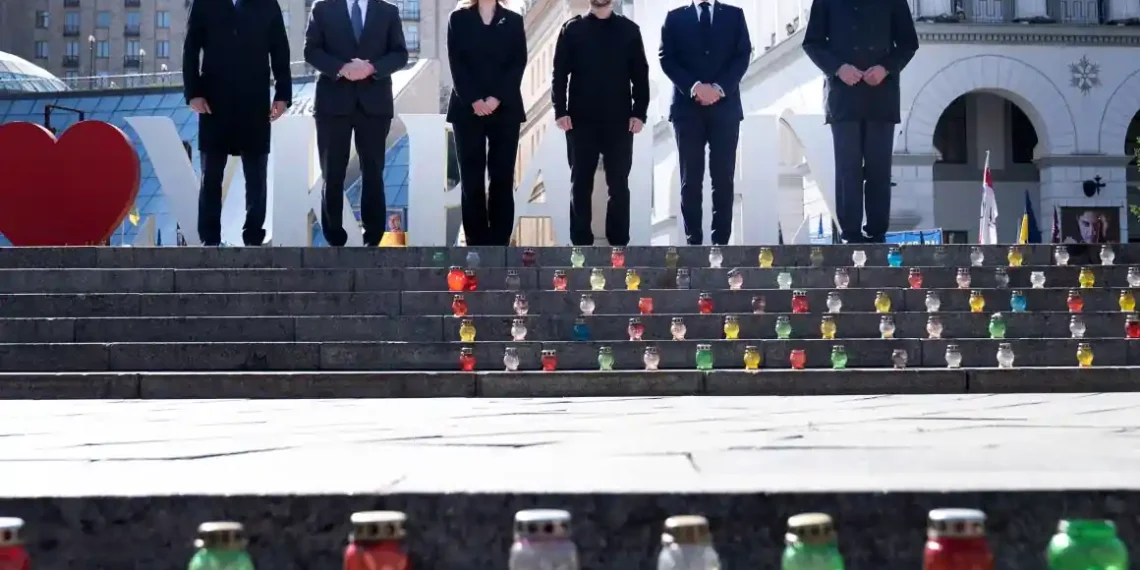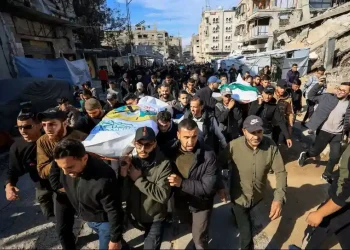European Leaders in Kyiv Demand 30-Day Ceasefire from Russia or Face ‘Massive’ Sanctions
In a powerful show of unity and support for Ukraine, the leaders of Germany, France, the United Kingdom, and Poland visited Kyiv this weekend and issued a clear message to Moscow: agree to a 30-day ceasefire starting Monday—or face sweeping new sanctions.
French President Emmanuel Macron, speaking alongside Ukrainian President Volodymyr Zelensky, said the demand comes with full backing from the White House, following a joint call with U.S. President Donald Trump.
Ceasefire on All Fronts
The proposed ceasefire would cover land, sea, and air operations. If successful, Macron said, it could open the door for immediate peace negotiations aimed at ending the war.
“We demand it together from Russia,” Zelensky declared during the joint press conference. “The ceasefire must be full, unconditional, and begin Monday, May 12. Anything less is a clear sign of an intent to drag out the war.”
Kremlin Pushes Back
Despite the unified front from Kyiv and its allies, the Kremlin isn’t budging—at least not yet. In an interview with CNN, Kremlin spokesperson Dmitry Peskov said Russia is “resistant to any kind of pressure,” and while President Putin supports a ceasefire “in general,” he raised vague concerns that “still need answering.”
One likely sticking point? Western military aid to Ukraine. Peskov hinted to ABC News that Russia wants an end to U.S. and European weapons deliveries—a demand Kyiv and its allies are unlikely to entertain.
Leaders Arrive in Kyiv by Train
Macron, German Chancellor Friedrich Merz, UK Prime Minister Keir Starmer, and Polish Prime Minister Donald Tusk arrived early Saturday morning by train. They were welcomed at Kyiv’s central station by Zelensky’s chief of staff and later paid tribute to Ukraine’s fallen soldiers at Independence Square before heading to Mariinsky Palace for high-level talks.
Later, the four leaders huddled around a phone for a joint call with President Trump. Ukraine’s Foreign Minister shared a photo of the moment online, describing the conversation as “fruitful.”
The Clock Is Ticking
With less than 36 hours to go, if Russia agrees, satellite monitoring and communication systems will need to activate quickly to enforce the ceasefire across multiple fronts.
Russia, meanwhile, has continued with short-term, unilateral ceasefires—like the one it declared ahead of its annual May 9 Victory Day celebration. That pause is set to expire at midnight. Ukraine reported hundreds of Russian attacks during this period, though there were no major airstrikes or drone attacks on cities since Wednesday.
A Shift in U.S. Diplomacy
Since Trump’s return to the White House in January, Ukraine and its European allies have been closely watching for changes in U.S. policy toward Moscow. Trump recently warned that failure to respect the proposed ceasefire would result in further sanctions—signaling a tougher stance than some expected.
Still, Peskov downplayed the pressure, saying, “We are very grateful for U.S. mediation efforts, but it’s quite useless to try to press on us.”
Rising Security Concerns
Amid ceasefire talks, the U.S. Embassy in Kyiv issued a security alert Friday, warning of a potential major air attack in the coming days based on intelligence reports.
With diplomacy hanging in the balance, all eyes now turn to Moscow—and whether Putin will seize the chance for de-escalation or face deeper international isolation.
This article was rewritten by JournosNews.com based on verified reporting from trusted sources. The content has been independently reviewed, fact-checked, and edited for accuracy, neutrality, tone, and global readability in accordance with Google News and AdSense standards.
All opinions, quotes, or statements from contributors, experts, or sourced organizations do not necessarily reflect the views of JournosNews.com. JournosNews.com maintains full editorial independence from any external funders, sponsors, or organizations.
Stay informed with JournosNews.com — your trusted source for verified global reporting and in-depth analysis. Follow us on Google News, BlueSky, and X for real-time updates.














